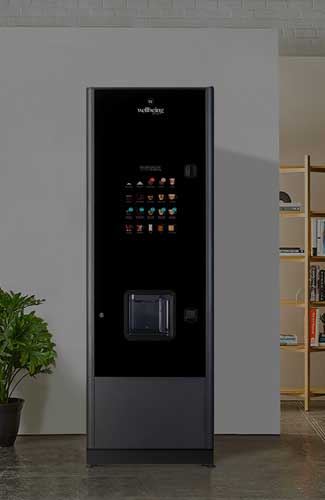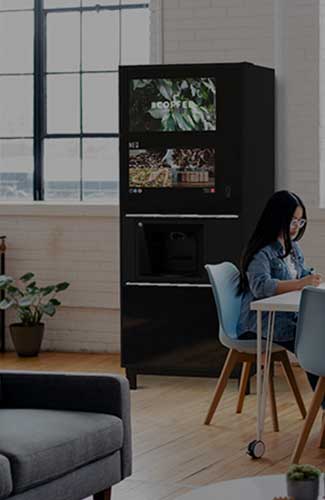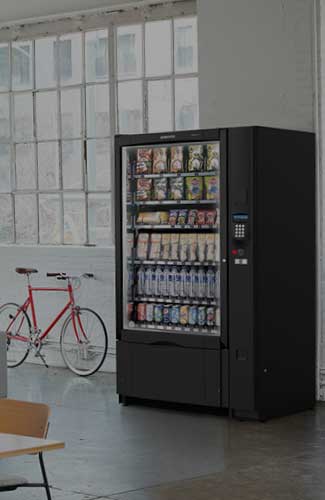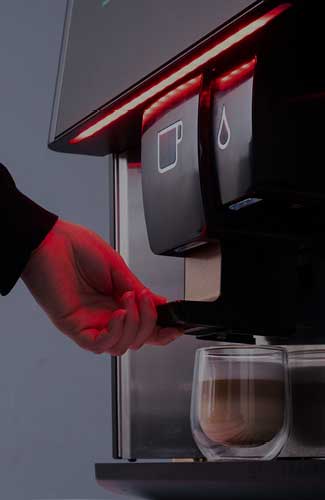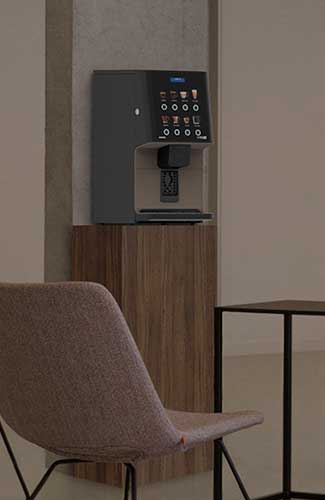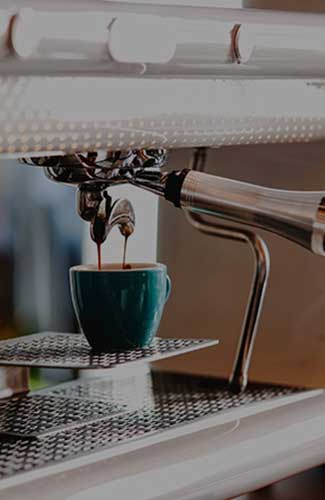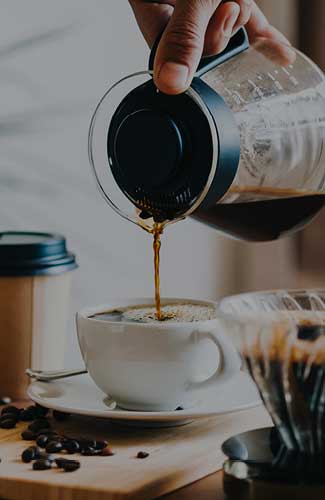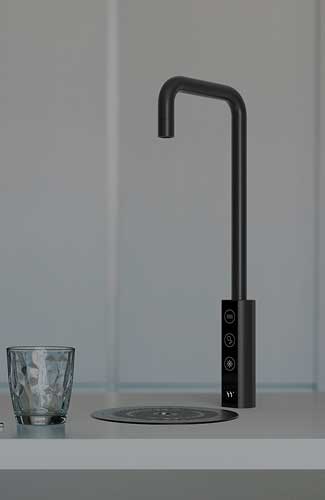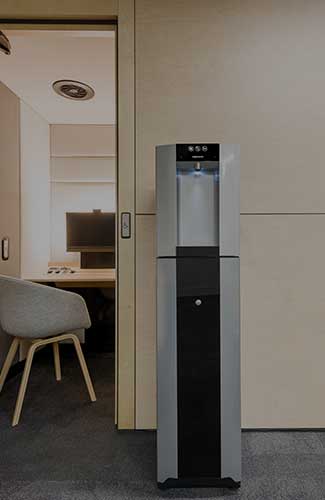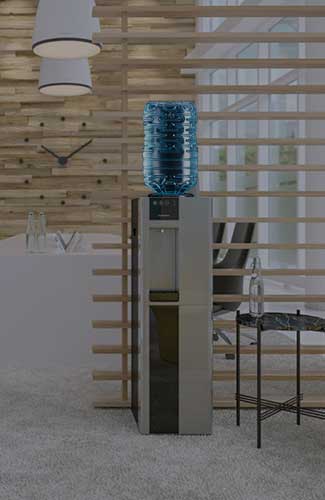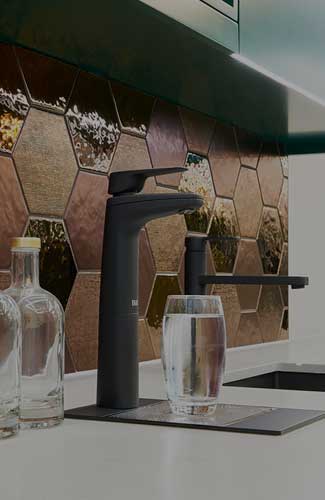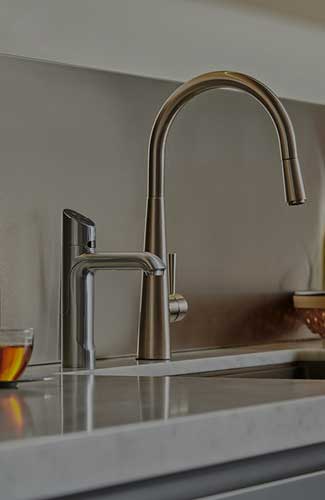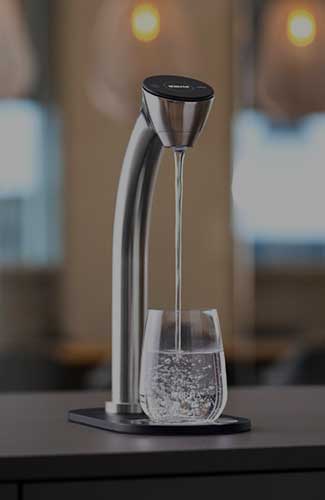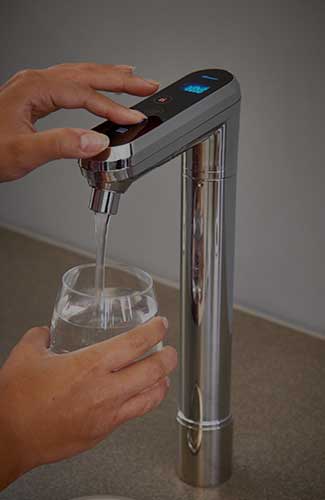International Coffee Day – Women in Coffee
Many countries around the world celebrate their own National Coffee Days at various times throughout the year. In Brazil, the biggest coffee producer, it is celebrated on 24th May. In the USA it’s 29th September. Here at Wellbeing Group, we believe every day is a good day for celebrating our favourite hot beverage. However, to try and unify all these celebrations across the globe, the member countries of the International Coffee Organization and their coffee associations chose 1st October as International Coffee Day! This year we have decided to dedicate the ocasion to celebrate all the women in coffee – Women play a vital important role in the coffee chain from planting the seeds to trading and sourcing to brewing. Have you ever thought about how much work goes in for you to be able to drink your daily cuppa?
Over the past fifty years, coffee shop fever has swept the UK. Once a nation of tea lovers, the UK now spends £6.2 billion a year in shops and drinks an estimated 95 million cups of coffee in just one day. There are a staggering 16,500 coffee bars in Britain, and in spite of the current financial climate, coffee shops are one sector that continues to boom while other businesses struggle. Once viewed as an expensive luxury, coffee shops are now seen as an affordable treat. Appealing to both men and women, families, individuals, and everyone from students to business people and pensioners – coffee shops are truly universal in their appeal. The boom in coffee shops in part was brought about by more working women having money to spend, creating a demand for an affordable yet luxury-style coffee.
Gender equality in the coffee industry
Despite being a driving force behind the demand for coffee shops in the UK, women are massively under-represented in the coffee industry. Despite a “data gap” regarding gender equality in the coffee chain, what data there is shows that there is a lot of room for growth for equality in the industry.
For our design and fit out and facilities management customers, we have also provided a clear breakdown of each coffee machine’s energy performance capabilities, dimensions and the requirements for installation, power and water supply. And of course a breakdown of purchase and lease pricing, for which we offer flexible payments plans. If there is still anything you happen to be unsure about you can still speak to our experts in a our service team to help you figure out the best coffee machine for your workplace.
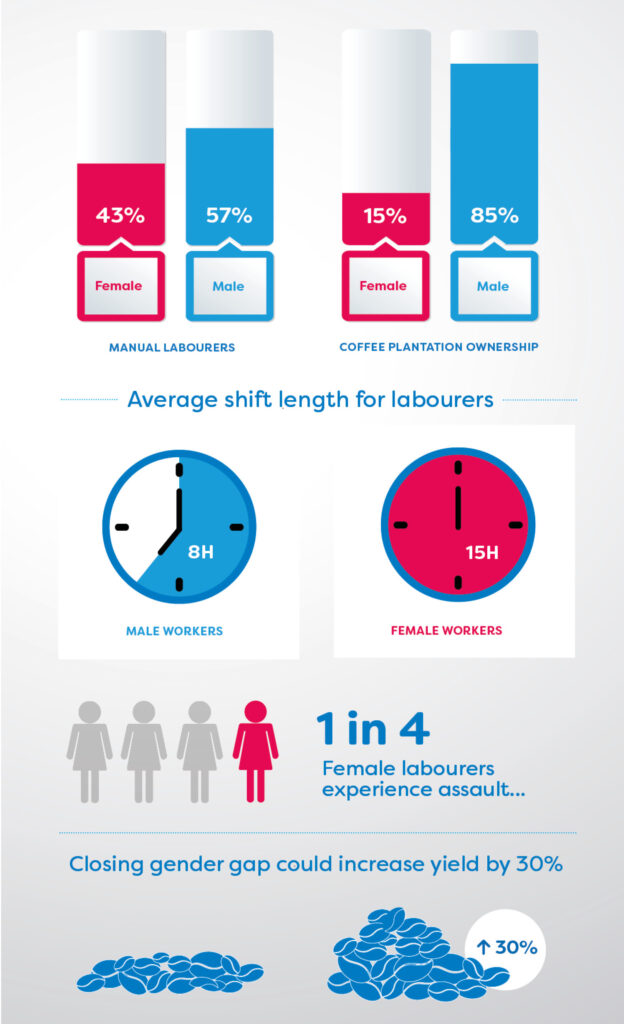
Field work for women in the coffee industry
A 2008 analysis by the International Trade Centre shows that women are highly present in fieldwork, harvesting, in the sorting of coffee beans, and other manual work. A more recent study in 2016 by the Food and Agriculture Organization of the United Nations (FAO) showed that even though women made up 43% of the agricultural labour force in developing countries, this all came from basic field work. Women undertaking this work receive lower wages and fewer entitlements than their male co-workers doing the same work. To date, women have been barely present in trading, exporting, analysis or lab work. Decision-making and business roles are reserved for men, while women are employed in dead-end labourer roles.
Women & coffee plantation ownership
The 2008 study also indicated another disadvantage; far fewer women-owned coffee plantations. While they make up a majority of the labour workers, approximately only 15% of coffee plantations are owned by women. The reason for this can be explained in an even more shocking study on gender equality in the coffee industry in 2015. This study revealed that in many countries where coffee is grown, the laws either completely prevent or limit the amount of land a woman can own, preventing them from ever owning coffee plantations.
Working conditions for women in the coffee industry
The same study also found that, even though they receive lower wages, women on average worked 15-hour shifts, while their male coworkers worked an average of 8-hour shifts. Women also have reduced access to resources such as healthcare and education compared to men.
Nick Watson, the coffee-sector adviser with the International Trade Centre says, “Social norms often discriminate against women in rural areas leading to disproportionate land and asset ownership; household and income decision making; time and labour distribution; access to information and training; and participation and leadership in rural organisations or as registered suppliers to agribusinesses.”
Further research has also shown that women, and even child workers, are often the victims of assault. One study has shown that 25% of labourers on a coffee plantation have experienced some kind of assault while working there. The under-representation of women in management means there is little or no support or protection of female plantation workers or their rights. Women who are victims of these crimes reportedly stay silent due to fear of reprisal.
Women in coffee in Europe and the US
Gender equality isn’t just limited to the coffee plantations and traders in these countries. We may have laws in place that better protect women’s rights, but there is still a gender gap even in coffee shops in Europe and the US.
Looking at the division of labour, once again while there are equal opportunities for women to become a barista, women are under-represented in management. Similar to the coffee plantations, female baristas are paid less, have reduced job stability, and are at high risk of harassment, discrimination, and more.
Even female barista themselves are under-represented at events such as barista championships. In the 18 years the World Barista Championship has been running it’s never been won by a female, and the same pattern is seen in coffee roasting championships.
The outlook for women in the coffee industry
According to the World Economic Forum (WEF) it will be another 100 years before men and women achieve social equality, and over 200 years before men and women achieve total financial equality. It’s a long way away, but it is being facilitated by a number of women’s organisations working to try and improve equality in the coffee industry across the globe.
By enforcing gender inequality, many coffee farmers are actually closing themselves off to a variety of benefits. Currently, it’s estimated that eliminating the resources gap between men and women and allowing women equal access to agricultural resources would increase the yields on women’s farms by 20% to 30% and increase agricultural production in developing countries by up to 4%.
The International Women’s Coffee Alliance (IWCA) works in collaboration with the United Nations (UN) and the International Trade Centre to help build a network of female coffee workers throughout East Africa, in order to overcome challenges such as lack of land ownership, financial resources, and access to education and healthcare.
Growing Women In Coffee is another project empowering women in the coffee industry, part of which included the launch of a brand of coffee entirely grown and produced by women. When Growing Women in Coffee was first established, they asked the female workers what it was they felt they needed. They found that women were often left to collect wood for the kitchen that produces meals for the workers. By investing in a biogas cooker, the women were quickly freed up to spend more time collecting beans, increasing the yield of the farm. This is just one of many positive changes they’ve invested in by listening to the female workforce.
The success of these projects do not rely on women solely however, many organisations emphasise the importance of educating both men and women, especially where patriarchal traditions are still in place. They want to get men onside and understanding the importance of including and valuing women in their workforce, especially at a decision making and financial level.
Meanwhile, organisations like Barista Connect focus on inspiring and empowering women in the coffee industry. They run networking events where women within the coffee industry can share their success stories, educating and inspiring women in various roles throughout the industry. The movement #coffeetoo was designed to counter the threat of harassment and assault in the industry across the world.
In Summary
While there are organisations working to improve the opportunities and basic rights of women within the coffee industry, there is a lot of room for growth. It’s essential that those in the coffee industry work together, uniting across the coffee chain in order to tackle the issues regarding inequality. From the plantations to the coffee shops, and from individual businesses to large coffee traders, everyone has a responsibility to ensure that women are no longer treated as anything more than a primary labour force, and are offered the same opportunities as their male counterparts. As the research proved, this will not only benefit the female workers but the coffee industry as a whole.
What we can offer
Wellbeing Group offer of Fairtrade coffee beans and a Fairtrade coffee blend. By choosing Fairtrade coffee products you will be supporting coffee farmers and helping them to fight the challenges they are facing. For more information on our Fairtrade products, or our coffee machines, call us today on 01905 675965 or pop an email to sales@thewellbeinggroup.co.uk and we’ll get back to you shortly.




